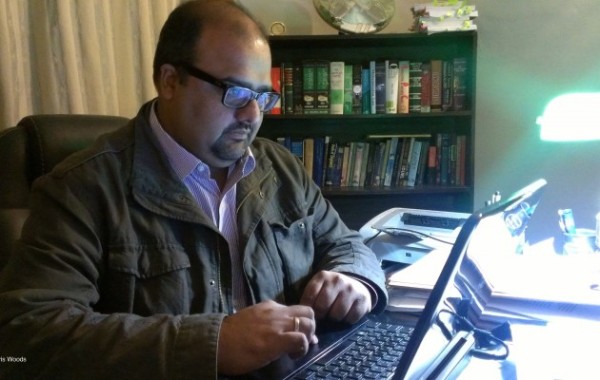In her May 9th, 2013 article by Alice K Ross for The Bureau of Investigative Journalism explains:
‘In the first major Pakistani court ruling on the legality of the CIA’s drone campaign in the country, a Peshawar High Court judge said this morning that strikes are ‘criminal offences’. Chief Justice Dost Muhammad Khan ordered Pakistan’s government to ‘use force if need be’ to end drone attacks in the country’s tribal regions.
He ruled that US drone strikes in Pakistan constitute a ‘war crime’ and are a ‘blatant violation of basic human rights’, killing hundreds of civilians. He ordered the government to ‘forcefully’ convey to the US that it must end drone strikes and called on the UN Security Council to intervene.
The Pakistani government should also gather data on those affected by drone strikes, and offer redress to the victims, Khan added. At present the only data systematically released on drone strikes comes from independent monitoring organisations such as the Bureau of Investigative Journalism, which has been investigating drone strikes and tracking reported casualties since 2011.
The ruling comes two days ahead of national elections marking Pakistan’s first-ever transition from one civilian administration to another. The new government will have to decide between implementing the court’s orders or appealing to the Supreme Court.
The judgment applies to a lengthy case against the CIA brought by the Foundation for Fundamental Rights on behalf of Noor Khan, a tribesman whose father was among dozens of civilians killed in a drone strike on a gathering of tribal elders on March 17 2011. Last year, Noor Khan also attempted to bring legal action against the UK government for providing information that could lead to deaths in drone strikes, in a case backed by legal charity Reprieve. The attempt was refused but he is appealing.
Lawyer Shahzad Akbar, who argued the Peshawar case, said: ‘It is a landmark judgment: drone victims in Waziristan will now get some justice after a long wait. This ruling will also prove to be a test for the new government as if drones continue and government fails to act, it will run the risk of contempt of court.’
In the course of the Peshawar case, Dost Muhammad Khan also clarified that drone strikes were illegal even if – as has been rumoured – senior Pakistani officials secretly consent to strikes.
He also repeatedly demanded that the secretariat for the tribal regions releases any casualty data it holds.
Naureen Shah, an academic at Columbia Law School and co-author of several studies on drones, said the ruling increases the pressure on the US to respond to claims of civilian deaths in drones strikes.
‘The US government can’t afford to be silent on civilian deaths any more,’ she said. ‘The Peshawar High Court says that drone strikes are carried out “at random” and kill hundreds of civilians. That’s a damning charge that may be overstated. The US government must answer it with investigations and public disclosure about who is being killed and on what legal basis. If the US does not respond, it risks the appearance of indifference – to human life, and to the rule of law.’
The UK is now housing its own Drones
In December 2012 a UK High Court ruling blocked attempts by a Pakistani whose civilian father had been killed by drones to force the Government to reveal if the UK shared intelligence with the US drone programme, which could mean officers were accessory to war crimes.
The Judge considered that it was a matter for Parliament rather than the Courts, effectively blocking any possible debate about the illegality of the use of drones under International War Law. The UK has at present a fleet of 500 drones, which have been deployed in Afghanistan, and expects to increase the number to 1/3 of the total fleet by 2030.
‘Drone strikes threaten 50 years of international law’, says [Christof Heyns, the UN special rapporteur on extrajudicial killings, summary or arbitrary executions]
US policy of using drone strikes to carry out targeted killings ‘may encourage other states to flout international law’. The Guardian
The ethical point reaches Hollywood
If you are one of the millions of people who have recently dived into cinemas to have another fix of the Star Trek saga, you may or may not have noticed the ‘drone moment’ in the film, in which one of the characters states that sending an unmanned photon torpedo to kill the ‘baddie’ without even attempting to capture him alive to bring him to justice is unethical. The following sequence of events leaves it to spectator to decide whether it is right or not to try to take the criminal alive, given the risks involved. But al least the issue is somehow brought to light, albeit in a subtle way and so buried in the midst of 3D immersion violence that I wonder how many people will actually realise, let alone remember, it was there.










